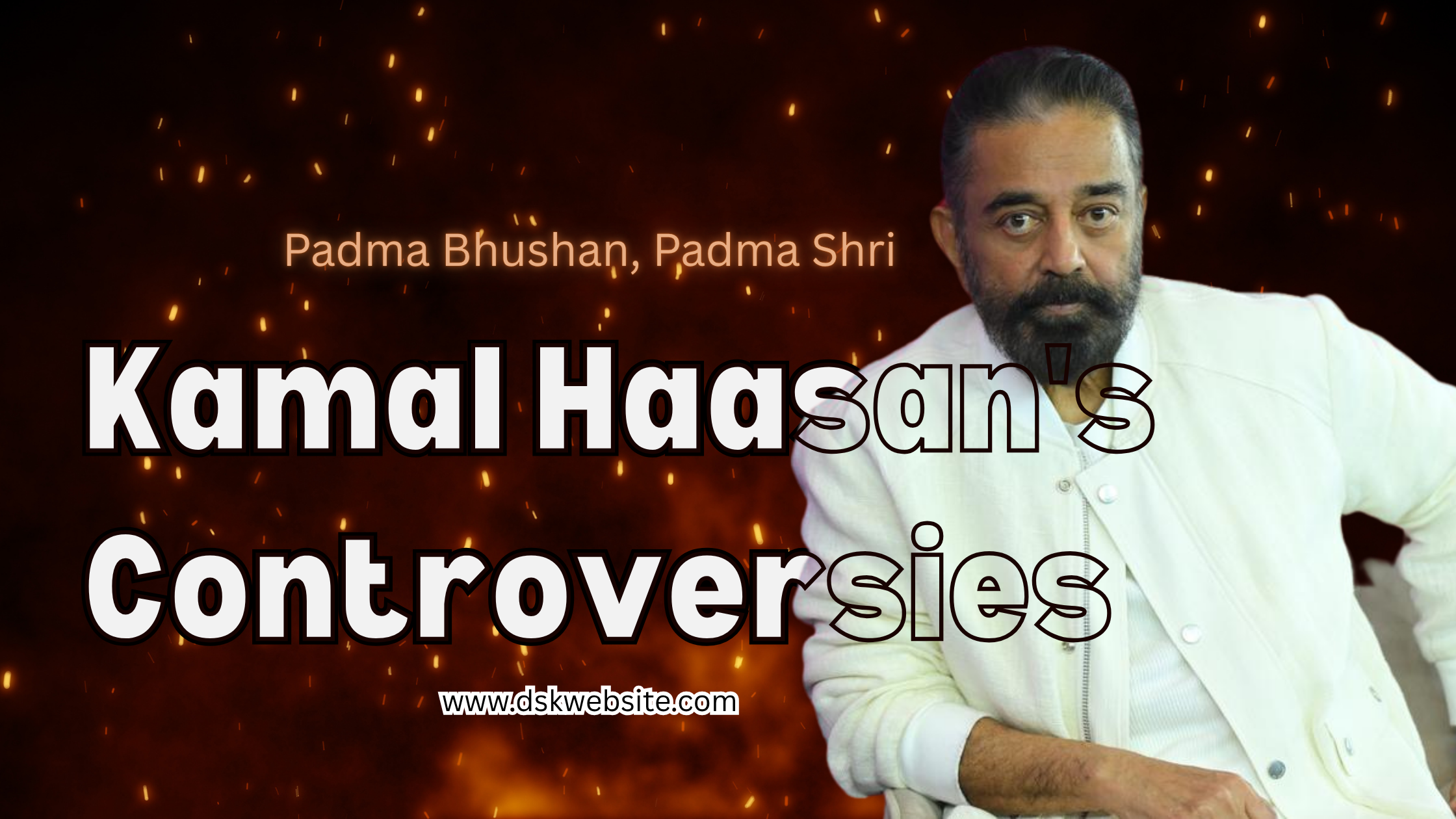A Deep Dive into the Multifaceted Persona of the Indian Cinema Icon
Kamal Haasan, a stalwart in Indian cinema, is renowned not only for his versatile acting and filmmaking prowess but also for his candidness and willingness to voice his opinions. Over the years, Haasan has been at the center of several controversies that have sparked intense debates across the nation. This blog delves into some of the most notable controversies surrounding Kamal Haasan, exploring the events, reactions, and implications of each.
1. The ‘Kannada Originated from Tamil’ Remark (2025)
In May 2025, during the audio launch of his film Thug Life, Kamal Haasan made a statement suggesting that the Kannada language originated from Tamil. This assertion ignited a firestorm in Karnataka, leading to widespread backlash from pro-Kannada groups and linguistic scholars who deemed the claim historically inaccurate and culturally insensitive. The Karnataka Film Chamber of Commerce (KFCC) demanded a public apology within 24 hours, failing which they banned the release of Thug Life in the state. The Karnataka High Court also criticized Haasan, questioning his authority to make such claims and emphasizing the sanctity of Kannada language and culture.
Despite the controversy, Haasan stood by his statement and refused to apologise, garnering support from various quarters in Tamil Nadu. He expressed gratitude to the people of Tamil Nadu for their unwavering support during this period.
2. The ‘Hindu Terrorist’ Comment (2019)
During a political campaign in 2019, Kamal Haasan referred to Nathuram Godse, Mahatma Gandhi’s assassin, as “independent India’s first terrorist” and highlighted that he was a Hindu. This remark stirred significant controversy, with political parties like the BJP and AIADMK accusing Haasan of indulging in divisive politics. An FIR was filed against him, and there were calls for his arrest.
Haasan defended his statement, asserting that he was merely stating a historical fact and not targeting any religion. He emphasised that his intention was not to hurt sentiments but to highlight historical truths.
3. The ‘Uttama Villain’ Dispute with Producer Lingusamy
The 2015 film Uttama Villain, starring and co-produced by Kamal Haasan, faced commercial failure, leading to financial losses for the production house Thirrupathi Brothers, headed by director-producer Lingusamy. Lingusamy later alleged that Haasan had promised to compensate for the losses by acting in another film under their banner, a commitment that remained unfulfilled even after several years. In 2024, Lingusamy filed a complaint with the Tamil Film Producers Council, seeking intervention and resolution.
The dispute highlighted the challenges and complexities involved in film production agreements and the importance of honoring commitments in the industry.
4. The ‘Vishwaroopam’ Controversy (2013)
Vishwaroopam, a spy thriller directed and co-produced by Kamal Haasan, faced significant hurdles upon its release in 2013. Muslim organizations in Tamil Nadu protested against the film, alleging that it portrayed the community in a negative light. The Tamil Nadu government imposed a ban on the film’s release, citing potential law and order issues. Haasan challenged the ban in court and expressed his anguish over the situation, even contemplating leaving Tamil Nadu.
After negotiations and the agreement to make certain edits, the ban was lifted, and the film was released. The incident sparked a broader debate on artistic freedom, censorship, and the role of the state in regulating creative content.
Conclusion
Kamal Haasan’s journey in the Indian film industry is marked by artistic brilliance and a fearless approach to expressing his views. While his statements and actions have often led to controversies, they also reflect his commitment to engaging with complex social and political issues. These incidents underscore the delicate balance between creative expression, public sentiment, and the responsibilities of public figures in a diverse and pluralistic society.
